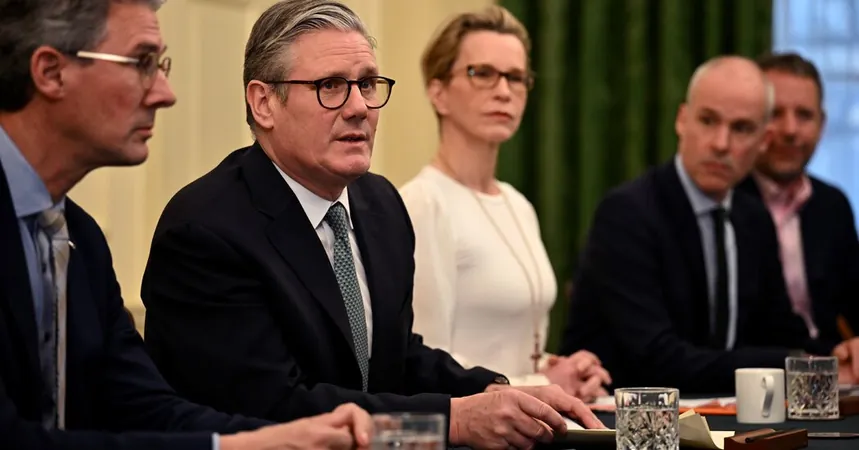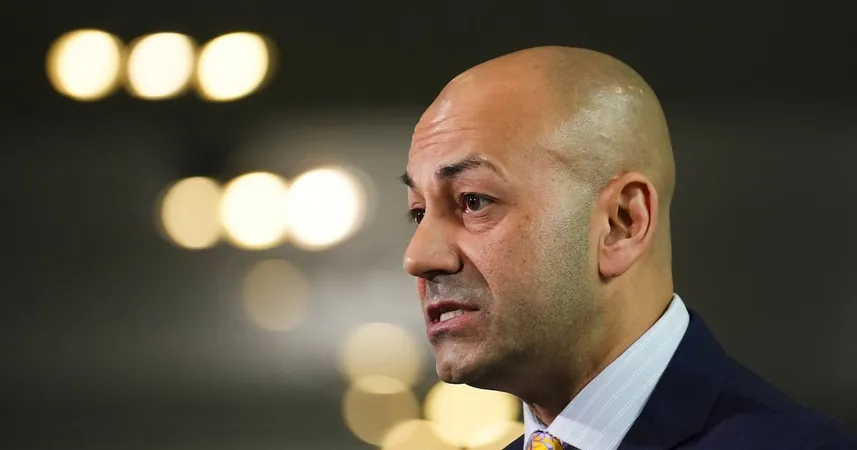
Global Outcry: How Nations Are Responding to Trump’s New Tariffs
2025-04-03
Author: Liam
Global Outcry: How Nations Are Responding to Trump’s New Tariffs
The recent announcement of steep tariffs by President Trump has sparked a wave of reactions from the United States' key trading partners. Here's a comprehensive look at how various countries have begun to respond to these economic tactics.
China
The Chinese government swiftly condemned the tariffs, labeling them as "unilateral bullying" by the United States. The Commerce Ministry in Beijing announced that they would implement countermeasures against the 34 percent tariff imposed on its goods, which adds to the existing levies that have been in place since earlier this year. Notably, Trump has also eliminated a loophole allowing e-commerce platforms like Shein and Temu to ship goods to the U.S. tax-free, fueling concerns over the impact on affordable consumer goods.
European Union
Ursula von der Leyen, president of the European Commission, pledged that the EU would come together in response to the tariffs but provided no details on the specific measures to be taken. The EU is facing tariffs of 20 percent on its exports, prompting a renewed discussion on collective trade strategies to counteract the potential economic fallout. The phrase, "If you take on one of us, you take on all of us," resonates deeply within the bloc's ethos.
Britain
Prime Minister Keir Starmer emphasized the importance of ongoing negotiations for a trade deal with the U.S. despite facing a 10 percent tariff, which is lower than that imposed on the EU. Starmer's government is keen to maintain strong bilateral relations and appears hesitant to initiate immediate retaliatory measures.
France
The French Prime Minister, François Bayrou, voiced strong opposition to the tariffs, calling them “a catastrophe for the economic world.” Highlighting the interconnectedness of global markets, government spokesperson Sophie Primas hinted at a potential European Union response targeting American services, which could significantly impact major U.S. tech companies like Google and Apple.
Germany
German Finance Minister Jörg Kukies expressed hope for a negotiated solution but warned that a robust response is necessary. The new tariffs, particularly on automotive components, pose a significant threat to Germany's efforts to rejuvenate its sluggish economy, the largest in Europe.
India
The Indian Commerce Ministry stated it is "carefully examining" the implications of the 27 percent tariffs announced by the United States. This comes amid ongoing concerns regarding the U.S. trade deficit with India, a point of contention for President Trump despite his camaraderie with Indian Prime Minister Narendra Modi.
Japan
Japanese Prime Minister Shigeru Ishiba described the tariffs as "extremely regrettable," opting to refrain from immediate counteractions. He emphasized the role Japan plays in aiding U.S. re-industrialization, noting that Japan is the largest foreign investor in the United States.
Conclusion
This unfolding trade conflict highlights the ripple effects tariffs can have on international relations and the global economy. Countries are strategizing their next moves, with many fearing that the situation could escalate into broader trade wars, which historically have proven detrimental to economic stability worldwide. How this will affect the global trade landscape and everyday consumers remains to be seen. Stay tuned for more updates as countries respond to this evolving economic saga!









 Brasil (PT)
Brasil (PT)
 Canada (EN)
Canada (EN)
 Chile (ES)
Chile (ES)
 Česko (CS)
Česko (CS)
 대한민국 (KO)
대한민국 (KO)
 España (ES)
España (ES)
 France (FR)
France (FR)
 Hong Kong (EN)
Hong Kong (EN)
 Italia (IT)
Italia (IT)
 日本 (JA)
日本 (JA)
 Magyarország (HU)
Magyarország (HU)
 Norge (NO)
Norge (NO)
 Polska (PL)
Polska (PL)
 Schweiz (DE)
Schweiz (DE)
 Singapore (EN)
Singapore (EN)
 Sverige (SV)
Sverige (SV)
 Suomi (FI)
Suomi (FI)
 Türkiye (TR)
Türkiye (TR)
 الإمارات العربية المتحدة (AR)
الإمارات العربية المتحدة (AR)